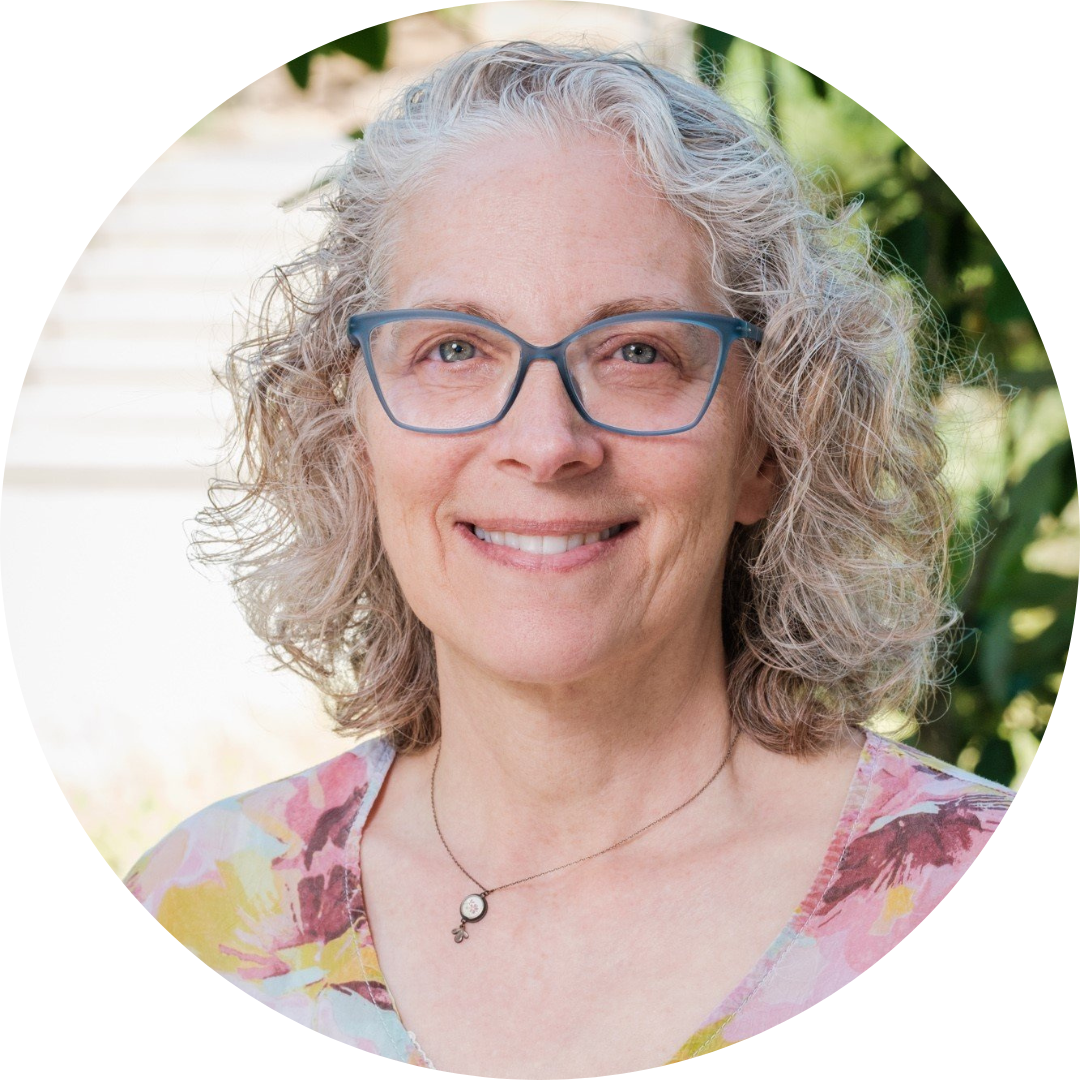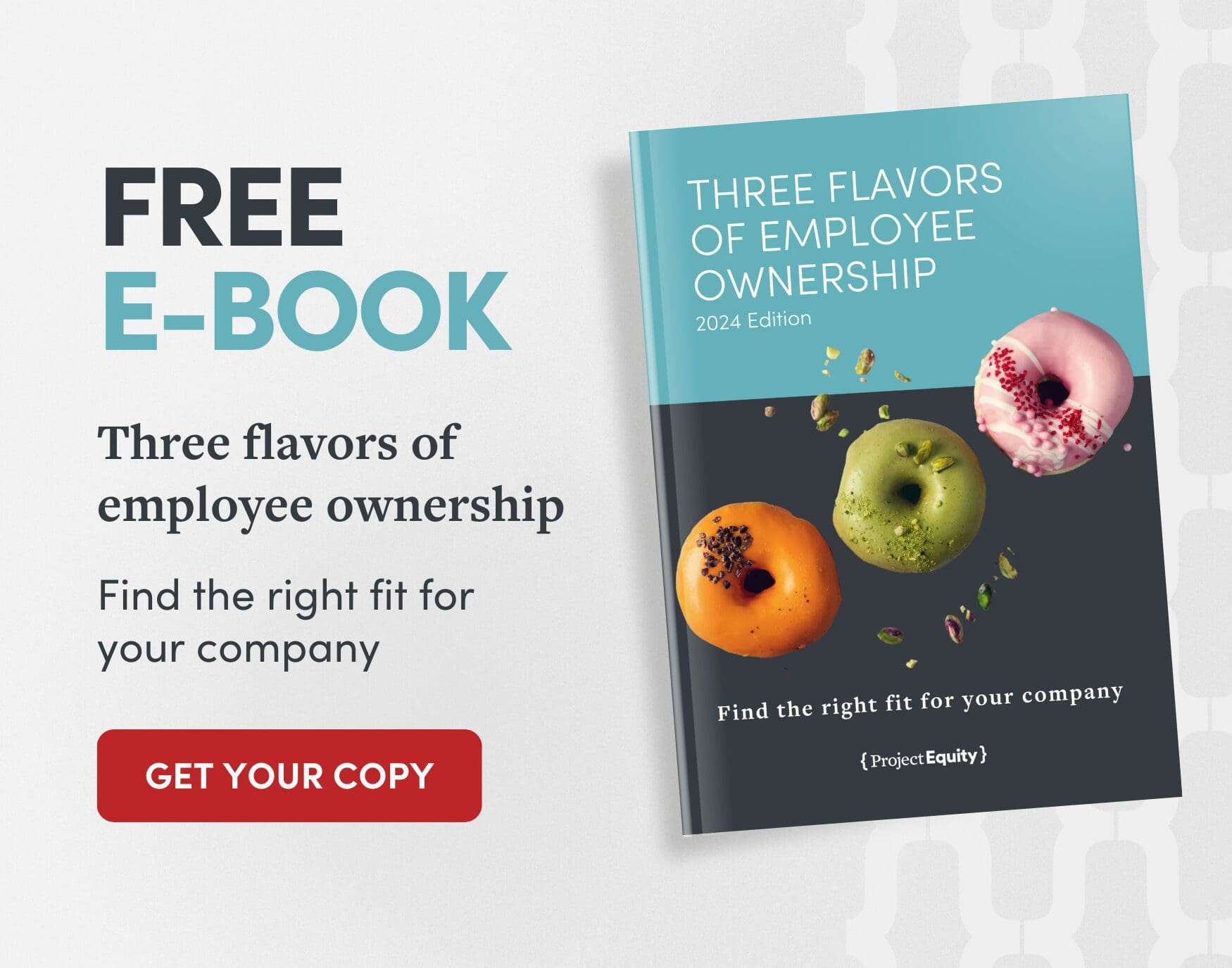A decade of wealth-building strategy at Project Equity
- Diane Ives
I first learned about Project Equity through my work at the Kendeda Fund, where the Fund linked sustainability with issues of economic equity. In order for Kendeda to advance its vision of ‘”well-being for all” within the ecological means of the planet, it needed to embrace building community wealth. Employee ownership became a throughline to the Fund’s community wealth-building grantmaking.
I have always seen Project Equity as a thoughtful, values-driven organization that plays a crucial role in expanding employee ownership and transforming the future of work—which can transform whole communities. On their tenth anniversary, here are a few reflections on Project Equity’s unique role in the employee ownership ecosystem.
Defining and growing the ecosystem is essential work
Great ideas can only grow to their fullest potential through diverse thinking. Because great ideas grow within an ecosystem of people and groups, the opportunity needs to be cared for and fed beyond the confines of any single organization. Early on, Project Equity demonstrated the power of EO with its “special sauce,” creating a cohort of successful businesses that transitioned to employee ownership. This meant building an ecosystem of EO companies pursuing different solutions: coops, ESOPs and EOTs. What mattered was that they were the right fit for the transitioning business.
From this early ecosystem-building work, Project Equity shifted to a strategy to impact the whole field through advocacy, research and data collection and partnerships with municipalities.
Project Equity has been a rudder that helps shift the dialogue around employee ownership. They have kept the organization nimble while shapeshifting larger opportunities in big ways. A critical piece of this story is Project Equity’s expertise in turning a crisis into an opportunity, as they did by leveraging the “silver tsunami” of retiring business owners to expand employee ownership.
Rethinking “scale” is transformative
One tricky aspect of nonprofit work is defining what it means to do something “to scale.” What I have always loved about working with Project Equity is their nuanced understanding of scaling an idea versus building an institution that tries to control the work. To scale the idea of EO, Project Equity constantly asks: “What is the most important idea we are trying to advance?” and “Who can we work with to expand EO in unique and different ways?”
A critical part of scaling an idea is ensuring there are good metrics by which to measure progress. Project Equity is pushing the bounds of creativity in measuring impact, including generational wealth, economic inclusion and the flow of money into local communities when EO businesses are rooted and thriving in place. At the end of the day, the value of EO is measured by how many employees have bank accounts, retirement accounts and savings plans for their kids to attend college. Project Equity understands what it takes to measure and show this real impact.
Project Equity has an evolving vision for the future of work
What I see for the whole field in the next ten years calls into question the future of work, how we experience work and how we build wealth.
In the United States, we have an entrenched narrative around personal identity based on work, and without actually talking about it, how much we earn and our buying power. Project Equity does an excellent job of asking questions that are shaping a new narrative: “How do we define integrity in the workplace? What is the value of ownership? How does agency in the workplace build dignity?”
Project Equity asks these questions intentionally through its day-to-day programs. And that puts them on the cusp of changing the whole frame around how we think about “work.” Project Equity’s emergent definition of work brings together economic value and social and emotional fulfillment.
What’s needed, what’s next
Project Equity’s work gives funders and supporters a chance to advance wealth building in today’s business marketplace. The real power lies in bringing philanthropic and investment dollars together to build the EO ecosystem, which in turn helps businesses be more successful. This is about fertilizing the soil to grow employee ownership as a trusted business strategy. The capacity for EO is growing, as evidenced by the U.S. Department of Labor recently hiring Project Equity co-founder Hilary Abell as Chief of the Employee Ownership Division. Project Equity’s first 10 years of tenacity, commitment to vision and strategic thinking has helped shape the current field of EO. I look forward to seeing what Project Equity’s creative work will bring in the next decade.
About the author
Diane is a consultant with over 20 years of proven leadership in philanthropy. She has deep knowledge and experience in economic democracy. As a fund advisor for the Kendeda Fund, she oversaw the distribution of tens of millions of dollars in employee ownership funding.



